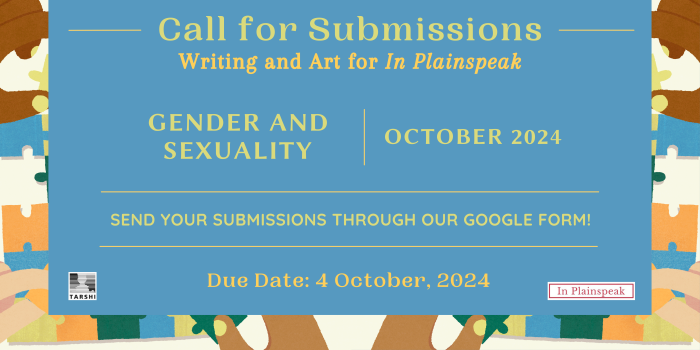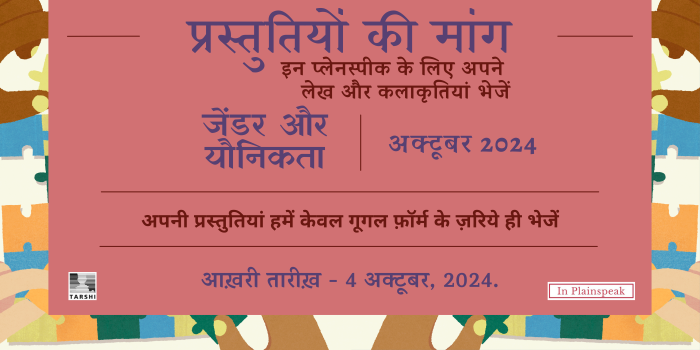
Rage. Horror. Grief. Despair. These are just a few of the strong emotions that are swirling around with hurricane intensity after news broke of the rape and murder of a doctor in the RG Kar Medical College and Hospital in Kolkata earlier this month. Yet again, a starkly gruesome reminder, not that we need one, of how cruel and uncaring we are as a society. An extreme reminder of how closely sexuality and the workplace are related and that a safe and healthy working environment is a fundamental human right.
Do workplaces take our needs into account? What might those needs be and how do they connect to sexuality? Shikha Aleya gently but firmly pulls on some skeins of this tangled ball of yarn to unravel it enough for each of us to see where the knots are and how we might begin to loosen them, if only a little. ‘Gender equality at the workplace’ sounds like a tired joke as Gitanjali identifies ‘boys’ clubs’ as yet another impediment to women rising in their careers while Silpi Bhaumik offers an innovative example of how the presence of queer AFAB (Assigned Female at Birth) persons in a professional kitchen changes heteronormative narratives. Meenu Vadera tells us of how she has taken the hard knocks she received during her professional career to transmute them into integrating a feminist politics and praxis into what she is doing now.
In Hindi, we bring you three translations: an article about how working from home led Siddhi Pandey to make peace with her singlehood, Moulshri Mohan’s review of Tales of the Night Fairies on the power of collective organising and contemporary debates about sex work, and an interview with Maya Sharma about sexuality, labour and social and economic justice.
Justice. What does it mean when it is taken out of the law books and policy papers and put into practice? Will we ever really know it in this country where not a day goes by without violations of people’s minds, bodies and spirits, where news outlets scream rape and murder and the “conscience of the nation is stirred” strongly every now and again only to go back into a stupor? But no, we cannot give in to despair. We have to start somewhere. Maybe with our selves and our own workplaces…
Speaking of Workplaces and Sexuality and referring to the violations of people’s minds, bodies and spirits, endemic in workplaces, we ended the editorial of our last issue of In Plainspeak with these words, “We cannot give in to despair. We have to start somewhere. Maybe with our selves and our own workplaces…” Fittingly, in the September issue on the same theme, Parmesh Shahani in an interview with Shikha Aleya offers a brilliant master-class on diversity, equity and inclusion (DEI) at the workplace. With warmth and empathy, Parmesh illustrates how the values underlying DEI are transmuted from being just an organisational framework, to becoming principles in action across all sectors at the Godrej Industries Group, one of the few Disability- and LGBTQ-friendly companies in India.
While companies like Godrej are Safe, Inclusive, and Self-Affirming (SISA) workplaces for women, LBGTQIA+ people and people with disabilities (PWDs), they are still only a shining minority. The vast majority of workplaces, as Shivani Rajan deconstructs, are battlegrounds where bodies are shaped, controlled, and violated. Shivani carefully peels off the layers of how this happens, one by one, to finally suggest where lies the potential for the workplace to be transformed from a battleground into a sanctuary. Similarly, Shilpa Nair puts out a heartfelt call to action for on-ground organisations to ensure the safety and wellbeing of frontline workers. Be it workers on the ground or workers in digital spaces, issues of consent and agency become paramount. Yash Singh Sisodiya examines, with examples, the complexities and challenges of addressing power imbalances and sexuality in digital workplaces.
Zoya Chadha, from her experience as a library activist, takes us deftly into the magical realm of reading and shows us the power that lies in this seemingly innocuous act: “Reading as threat, as deviance. Reading as pleasure, as protest, as sustenance. Reading as doing what you must to make this life uncircumscribed.”
“My colleagues, who spoke powerfully about inclusivity and the importance of mental wellbeing, were the same ones who made offhand remarks that revealed their true colours” says Janice G. in a first-person account of her journey out of the suffocating closet that her colleagues forced her back into. Radhika Modi voices similar sentiments in a poem rich with metaphors about workplaces where “identity flickers as a half-lit flame”.
In Hindi, we bring you a translation of Shikha Aleya’s article Hackers and High Heels. “Plus, in the TARSHI Corner, a translation of our short report Equity in Action: Experiences of Non-Profits Working Towards Safe, Inclusive and Self-Affirming Workspaces filled with insightful takeaways and colourful infographics. To learn more about our work on SISA spaces, click here.
Finally, check out Quick Bytes to see what our respondent Soumya Mishra has to say on Workplaces and Sexuality.
And, something happy-making to watch – just this month, Godrej DEI Lab has launched a small video, Pride @Godrej. Watch it in our Video Corner here.
Go gently, keep peace with your soul.

